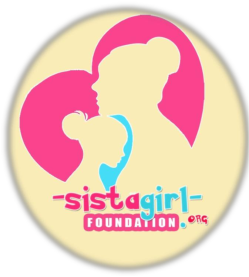- Have any questions?
- +27 72 723 6378
- info@sistagirl.org.za
Drug addiction substance use disorder Diagnosis and treatment
Alcohol withdrawal syndrome involves a collection of symptoms that a person with AUD may experience after giving up alcohol. Around half of all people who suddenly quit or limit their alcohol consumption develop withdrawal symptoms. An alcohol detox aims to help a person quit drinking alcohol and recover from AUD. The main benefit of an outpatient detox program is that you get to stay in your own home but still have professional support.
Starting With a Primary Care Doctor
Over time, however, the body builds a tolerance to alcohol, and a person may have to drink more and more to get the same feeling. Meanwhile, the brain is producing more and more neurotransmitters, making a person further imbalanced. The effects of alcohol are far-reaching and include dangerous symptoms when detoxing.
Social Support and Treatment Programs
- It can range from mild to severe, depending on how many symptoms you have.
- However, detoxing is achievable, and working with doctors can help you through the toughest parts.
- Overcoming alcohol use disorder is an ongoing process, one which can include setbacks.
- Anyone who has concerns about the amount of alcohol they are consuming can discuss this with a doctor.
- At the very least, you should arrange to have family or friends supervise you through the process.
LCSWs are trained in psychotherapy to help people deal with a variety of mental health and daily living problems, including substance misuse and addiction. They practice strength-based therapy, helping patients use their natural skills and talents to overcome issues and improve overall functioning. If you only consume a substance occasionally, you can expect to see little to no withdrawal symptoms upon quitting. However, if you consume substances regularly, you may feel initial withdrawal symptoms within a few hours of quitting. Focusing on your physical health can be a powerful first step in recovery from substance use disorders and moving toward sober living. After successfully detoxing, you may feel better and have greater mental clarity to address the psychological issues related to substance use disorder.
Alcohol Detox and Rehab Programs: What to Know
If you’re sweating, place a cold towel on your forehead or on the back of your neck. Prepare a playlist of your favorite songs or movies to pass the time. BetterHelp is an online therapy service that matches you to licensed, accredited therapists who can help with depression, anxiety, alcohol and insomnia relationships, and more. Take the assessment and get matched with a therapist in as little as 48 hours. “Cold turkey“ is a term used to describe the decision to abruptly stop using a substance. Unlike many other resources you may find online, the Navigator has no commercial sponsors.
Red flags to look out for when choosing a rehab or treatment program
As more medications become available, people may be able to try multiple medications to find which they respond to best. It is important to remember that not all people will respond to medications, but for a subset of individuals, they can be an important tool in overcoming alcohol dependence. The U.S. Food and Drug Administration (FDA) has approved three medications for treating alcohol dependence, and others are being tested to determine whether they are effective. Due to the anonymous nature of mutual-support groups, it is difficult for researchers to determine their success rates compared with those led by health professionals. Either way, rehabilitation programs give many people the tools they need to change their relationship with alcohol. Outpatient programs are less intensive and have flexible scheduling.
Outpatient care, also called ambulatory care, might include medication-assisted withdrawal to make the process easier. If you’re detoxing from opioids, you might get methadone or buprenorphine. If you’re quitting alcohol, you might get anti-seizure medication or benzodiazepines to help with the withdrawal, and naltrexone or other medications to help you stop drinking.
Severe Symptoms
They’re trained in a variety of evidence-based treatment methods designed to improve emotional and interpersonal well-being. Counseling can help members with SUD explore the reasons behind their drug or alcohol use and come up with new, healthy coping strategies. It can be especially effective for members who also have a mental health condition, or who started using to deal with distressing emotions, trauma, or excessive stress.
Drug addiction, also called substance use disorder, is a mental health problem. For that reason, detoxing on your own, without any guidance or supervision, is generally not wise. Behavioral health treatment for alcohol problems is often (but not always) covered by insurance. In the United States, most states have low-cost or free rehabilitation programs for those who are uninsured.
Your doctor can assess your individual needs based on your substance use and personal medical history to create an individualized detox plan that works best for you. They can also monitor you and your withdrawal symptoms around the clock and offer assistance. barbiturate withdrawal symptoms For example, some people with a history of alcohol use disorder (AUD) can experience delirium tremens (DTs) within the first few days of detox. Some symptoms of DTs, like psychosis or seizures, may be severe and require medical attention.
Here, detoxification takes place over three days, often involves medications like naltrexone, and connects you with referrals for treatment. You should start by determining how much alcohol you drink per day in terms of standard drinks. Tapering alcohol and seizures can alcohol or withdrawal trigger a seizure can help you overcome alcohol dependence, which is a side effect of chronic alcohol use that causes cravings and withdrawal. Detox doesn’t treat addiction, which is a disease characterized by compulsive behaviors, such as chronic alcohol use.

1 Comment
Your article helped me a lot, is there any more related content? Thanks!